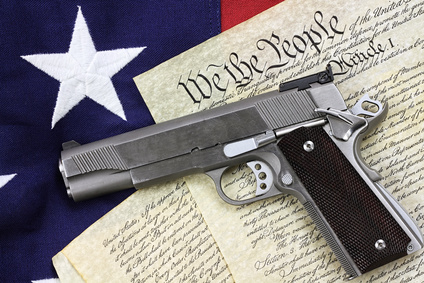Getting Your FFL – What Are Some Common Errors?
The FFL application, ATF Form 7 is required by the U.S. Federal government in order to determine if a person is eligible and qualified to receive a Federal Firearms License as required by 18 U.S.C. § 923 (a) of the Gun Control Act of 1968. An applicant for a Federal Firearms License (FFL) would also use the ATF F 7 if they intend to conduct business regulated under the National Firearms Act (NFA). The FFL applicant must provide all the information required on the form in order for ATF to make a determination as to whether the person is qualified to receive a Federal Firearms License.
Although the ATF F 7 (ATF 5310.12) is essentially not a complex form, in many instances, applicants fail to provide the required information accurately. This is generally because the applicant doesn’t understand certain elements of the process. In other words, the form itself is straight forward in it’s questions, but the applicant effectively doesn’t know the correct answers. This may seem counter intuitive because the applicant should know all his personal information, business structure and similar items right? Well, that’s not always the case. This should become clearer as we discuss some problem areas.
Below is a brief list and very brief discussion of some of the most problematic areas of the ATF F 7 (Application for a Federal Firearms License). Some of these may seem basic, but I can tell you after many years of experience, these problems occur every day.
Item (1) – Name of Owner or Corporation:
Seems pretty straight forward right? It’s not; many people struggle with this item. What if you own a corporation already that conducts other business? Should you use the corporation, or incorporate another one just for firearms? Should you use your personal name, or use a DBA, or both? What about corporations with multiple officers?
There a number of scenarios applicable that would cause the information in this block to change. Sometimes it’s a matter of personal preference when the applicant wants the license to read a certain way.
Item (11) – What Type of FFL is required for your proposed business?
Applicants must determine with the greatest amount of certainty, what the nature of their business is going to be. Part of ATF’s job is to ensure that the firearms business conducted is properly identified and licensed. This usually comes into play when there is confusion as to whether someone may technically engage as a “manufacturer”, but the applicant assumes the activity does not qualify.
There are several other possible scenarios; including a perceived need for multiple licenses when one license is sufficient to cover all the proposed activity.
This is a Service – Not a FFL kit.
Free Consultation from a former ATF Investigator – 12 Years with ATF
No charge for disabled Vets
Toll Free: 800-932-1979
Item (13) – FFL Hours Of Operation
This is easy right? When are you open for business? However, many applicants believe ATF requires certain hours or days that the business must be open in order to qualify. This is not the case. the business must have “hours of operation”, there are practical issues related to this requirement, but there is no specific requirement for certain hours or days to be entered on this form. The stress surrounding this question for some may be the term “Must be completed” in italics right in the item block.
Your FFL Application – Get It Right the First Time
What’s important to keep in mind about these items and others on the ATF F 7 is not that mistakes or misunderstandings can’t be dealt with effectively or corrected. It’s not that the applicant will be disqualified if the correction of errors needs to be made. The issue lies with the fact that errors, omissions and the need to clarify matters will inevitably delay the licensing process. It is also true that some errors, omissions and mistakes will lead to situations that will ultimately disqualify the applicant. Therefore, it’s extremely important that the ATF Form 7 contains the required and correct information that will advise ATF fully and properly of the applicant’s intentions without the need for amending or extensive investigation to get to the crux of the matter and have a perfected application.
Two more Items will be discussed in the next post.
JR Valdes


